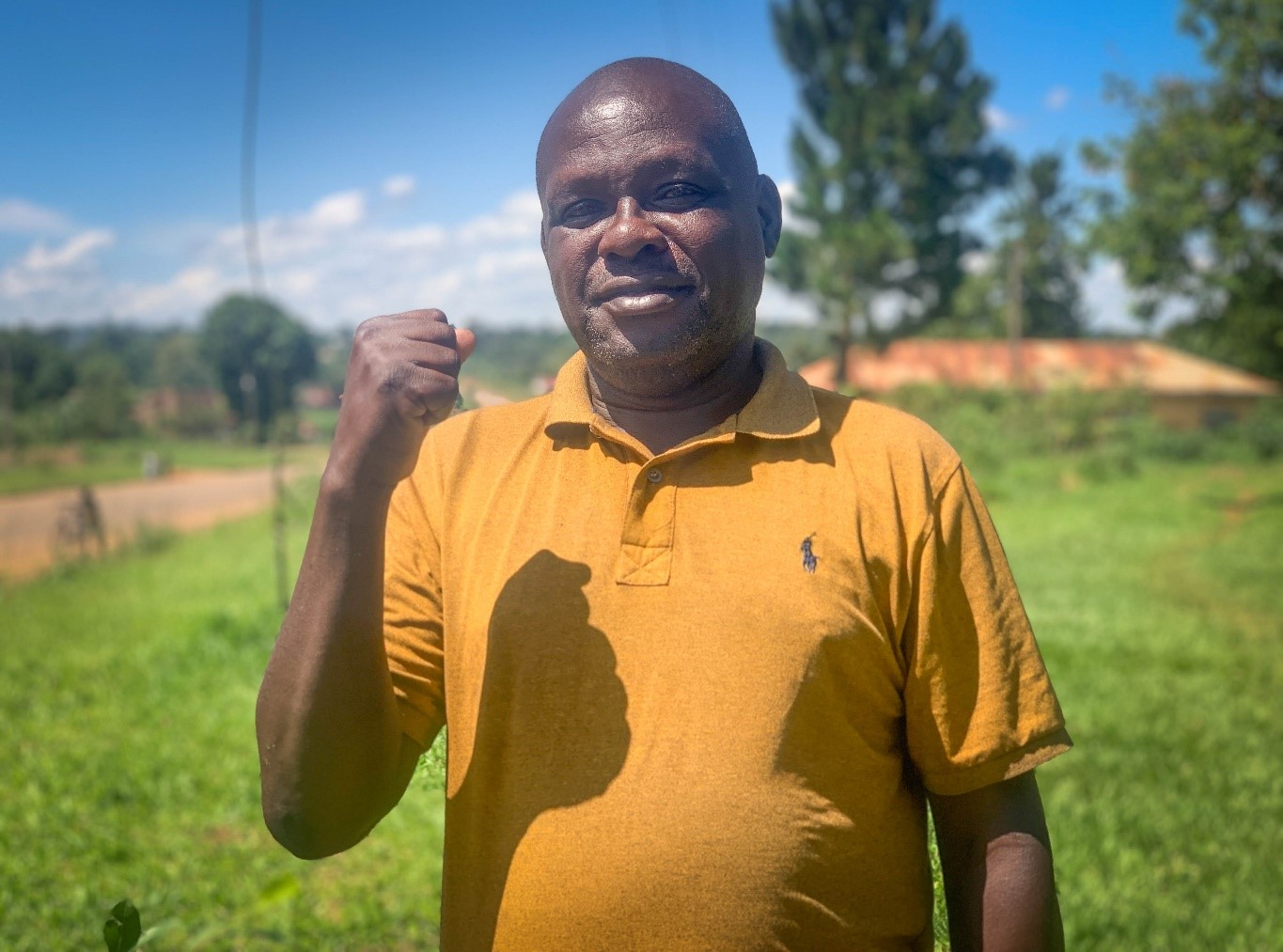A story of a GBV male champion Samuel Muhumuza from Hoima District, Uganda trained under Promise II project (DFPA).
“Of course, I’m a man. How can I be seen cooking or doing any home chores meant for women?” – Sam
Samuel Muhumuza is a Gender-Based Violence male champion from Kigorobya Northern Ward, Hoima District. His passion of being a Gender-Based Violence champion is derived from his personal experience and the trainings he has numerously had with Center for Health, Human Rights and Development (CEHURD). In my interview with Sam, he passionately shares how he finds it prestigious to do the kind of work he does and how he never wishes to go back to his previous life of being a politician.
“I knew I was a man. Certain gender roles weren’t for me however much they were affecting me. How could I be seen cooking? I would rather die of hunger than cook for myself or for my children even in the absence of their mum. But this narrative changed”. Says Sam
When change knocked Sam’s door, he embraced it and he’s now impacting his community. In Sam’s home, gender roles are shared amongst individuals be it male or female, and he does this openly so that his community can be able to pick a leaf from him.
“I have cows at home, with no herds man. My wife and I share this role. I also collect water for my family, and I have never lost my hands since I started doing so”. Says Sam
As a Gender-Based Violence champion, Sam has had to go head-to-head with some of his notorious cultural norms that spark of Gender-Based Violence. Much as he does his best to change his fellow men’s mindsets in his community, at times he’s looked at as a person trying to erode away his culture. Among the Alurs where Sam grew up from, women are not supposed to eat with men, they instead serve them, sit down and await on them as they eat until when they get done. After the man has gone, then a woman can eat after. Furthermore, a woman has no right to say no to sex if a man requests, regardless of her health condition. Cultural norms in Sam’s community are highly respected and this is something Sam has to deal with each and every day. He fights a monster that happens to safe guards his community.
Sam comes from a community where some people still believe that Gender-Based Violence cases happen in homes because of sorcery, woman’s delay to open the door for the man returning home past midnight is a sign of disrespect and all these can spark-off a fight. But as a champion who has gone through trainings, he clarifies to his community the major causes of Gender-Based Violence and breaks the myths and misconceptions around it.
In spite the criticism towards Sam’s work, he never stops what he does because it gives him a lot of joy. One of the things he proudly delights in is being able to reconcile breaking families through mediations. He even goes further to offer himself as a surety to suspected fellow men of Gender-Based Violence, with hope that when they’re out, he will talk to them and they change. This is a bold move, right? And surely, at least the two men he has stood for have not disappointed him.
“Much as fighting Gender-Based Violence is tedious and resolving its conflicts take a while, it is a worthwhile experience and this gives me pride and joy” – Sam says.
Sam therefore calls upon cultural leaders to join the mantle of putting an end to Gender-Based Violence and the government to be intentional on sensitizing communities on the dangers of Gender-Based Violence, since illiteracy and cultural norms happen to be the leading causes of Gender-Based Violence. He also urges other fellow men who have embraced change to be extemporary to others as he has been to his community.
By Faith Nabunya
Communications Officer,
Center for Health, Human Rights and Development (CEHURD)

